The terrible loneliness of dogs
How many dog lovers feel dreadful guilt whenever they leave the house without their dog? For some of us, it might be the worst time of day as our loyal canine companions’ soft, brown eyes follow our every preparation to go out with what we imagine to be a real sense of uncomprehending betrayal. However much we miss our dogs, you can guarantee they miss us more.
Dogs are very social creatures, and by bringing them into our homes, we have taken on a huge responsibility by making them dependent on us.
If a puppy or dog could list the things it wants most in life, being with the humans with whom it has bonded would be right at the top.

Lonely not naughty
Sadly, all across the world, dog shelters have been crammed this year with unwanted ‘pandemic puppies’. As people have returned to work, these dogs have suddenly become ‘naughty’, ‘ too much, or even ‘too needy’.
Some owners have despaired at behaviors such as destructive chewing of items as diverse as sofas, expensive clothing, and even their dog beds. Sometimes, a previously clean dog has started fooling around the house.
But many of these owners do not realize that this is not naughtiness but symptoms of terrible stress. This stress is called separation anxiety. As with all potentially difficult situations in our relationship with our beloved dogs, we are responsible for preparing our canine buddies to be alone.
Even if we think our dog copes with being alone, we must all know this can also be an invisible condition. Pacing, whining, and excessive drooling are other clear signs of high-stress levels, but these symptoms leave no physical evidence behind them.
One study in the United Kingdom used hidden cameras to show dog owners the stress levels their dogs experience, leaving them shocked and often in tears.
Training your dog or puppy to cope with separation anxiety
This needs to be done through socialization and training, and it should be done as early as possible. It is just as important, arguably more important, than teaching a puppy to sit, come, or heel.
With this training in place, you save your puppy from a huge amount of anxiety and help them develop a calmer and more confident temperament. For more general advice on how to help puppies become calmer as they grow, please click here.
So here are 7 top tips for preventing or lessening your pup feeling the blues every time you walk out the door:
1) Leaving your puppy for a little while
All training should be based around positive reinforcement, where dogs are encouraged to associate a potentially difficult situation with something positive, such as a reward or a feeling of security and safety.
Therefore, a puppy must learn to associate you leaving the house with security and, ultimately, a positive outcome. Also, like any other training, it must be done in stages.
The first stage is to get your puppy used to being alone for short periods of time while you are still in the home. This will initially reassure the puppy that being alone is only temporary.
Secure your puppy in a room or area where they are used to playing and being around you and perhaps your family. Do not shut the door, but, if possible, use a barrier the puppy can see through, such as a baby gate.
The best time to do this is immediately after the puppy has just had a good play or exercise to relieve the stress, as your puppy will naturally be ready to rest. You could also leave a favorite toy, chew, or other distraction for the puppy.
Do not make a fuss about your puppy as you leave. This will not reassure them but only heighten their anxiety when not only does the attention come to an end, but you disappear completely.
At first, only leave for around 5 minutes. Try to lengthen the periods of time the puppy is left alone by gradual extensions up to 15 minutes and then beyond.
This could include picking up your keys and leaving the house briefly as your puppy’s confidence grows. Eventually, your puppy will get accustomed to this and use this time alone as an opportunity for a nice nap.
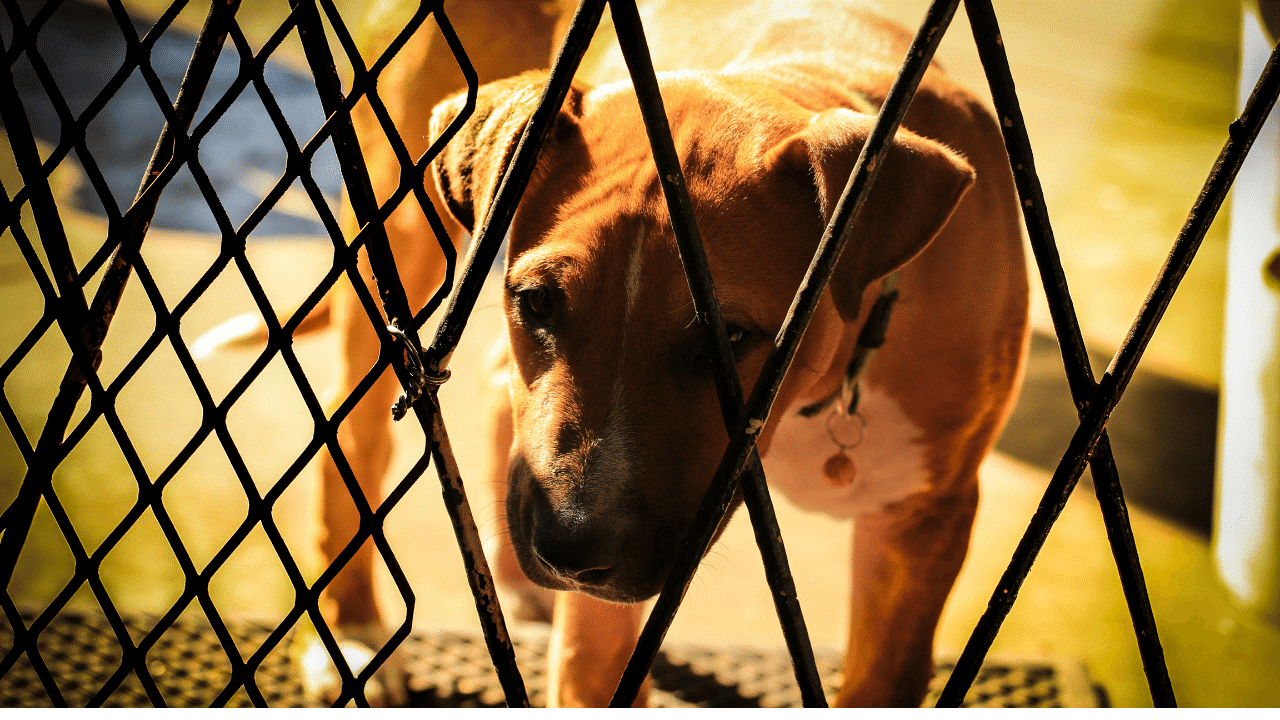
2) Ignore the heart-breaking sounds of whining or yapping
Hard as it is, he tries to ignore whining or yapping for your attention for those few minutes. If you return, then the puppy will think that this behavior will result in you magically reappearing, leading to future confusion.
You don’t want to leave your puppy distressed for too long but try to return when there is a quiet moment. This means you use positive reinforcement to allow your puppy to associate being calm with your eagerly anticipated return.
Then return to your puppy, showing them attention again, playing, or perhaps taking them out to the toilet. The puppy will then associate you leaving them with the joy of your return.
3) Create a safe place for your puppy
The place where you leave the puppy should be a little den or perhaps a crate where they can associate safety and security and where they wait for you to come back.
The destructive behaviors of chewing mentioned above are a puppy or dog’s attempt to create a secure nest or barrier around them when anxious. But you will create a snug little den for your dog by offering a comfortable bed or crate, with favorite toys and ideally something old that smells of you.
4) A well-exercised and comfortable dog is a happy dog
A good rule of thumb for leaving your dog alone is to ensure that you do so when they are most rested and have had a recent opportunity to the toilet.
This means your dog will be relatively relaxed as you leave and less desperate for your return. Indeed, it is likely that if you have to leave for a period of time, your dog will be ready for a walk when you come through the door.
This will strengthen the positive association of being left for a reasonable period as it becomes play-time and or walk-time when you are reunited. It also means time for the toilet.
What a joyous relief for your dog in more ways than one!
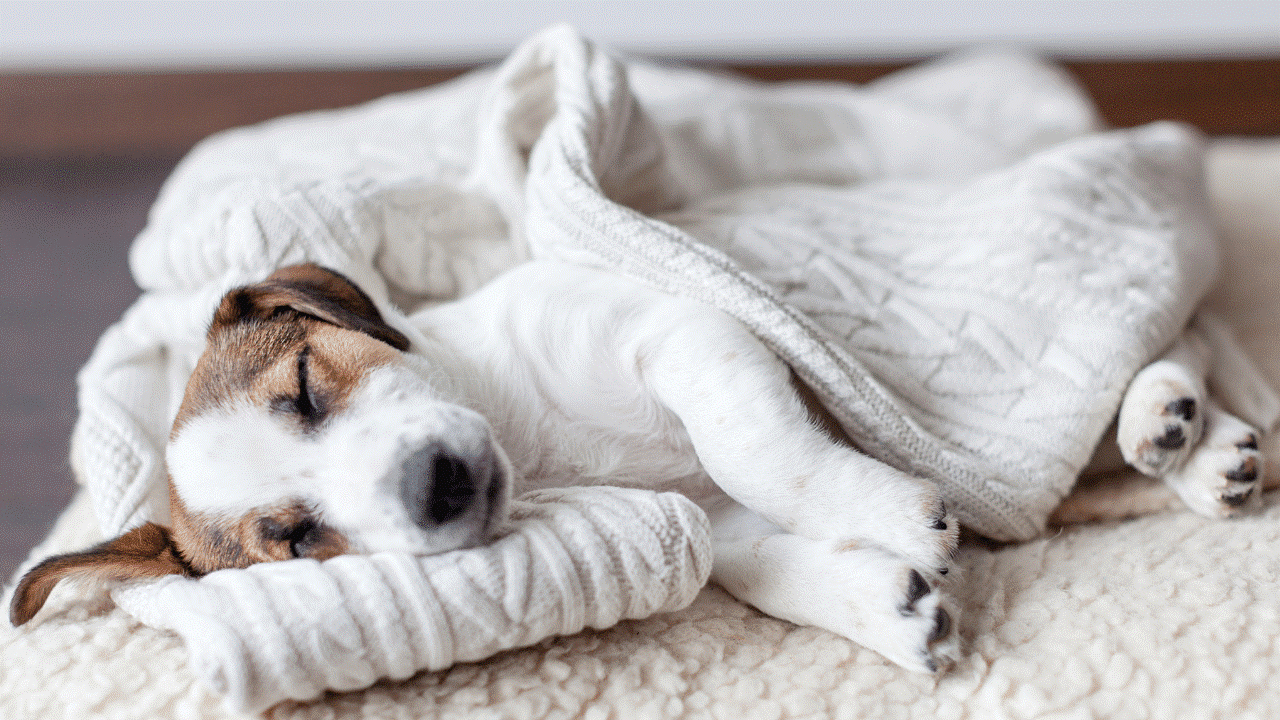
5) Never leave a dog or puppy alone for too long
Although preparing your dog for separation will build resilience in your puppy or dog, try to avoid leaving your dog alone for too long, as this will lead to stress and discomfort.
Dog welfare organizations offer general guidelines for the maximum hours for this, which increase as your dog grows older and more confident. A fully grown dog should not be alone for more than 4 hours if possible, and certainly no longer than 6.
A puppy for 3-6 months should be no longer than 3 hours. A puppy younger than this should be restricted to a couple of hours.
6) Leave work/entertainment for idle paws
Ensure you leave your dog with things to distract them from boredom and loneliness. This could include a Kong, safe chewable toys, or a long-lasting treat.
But be sure that you factor treats into your provision of the dog’s balanced diet, as you will not want to replace the problem of loneliness with the health implications of your pooch becoming overweight.
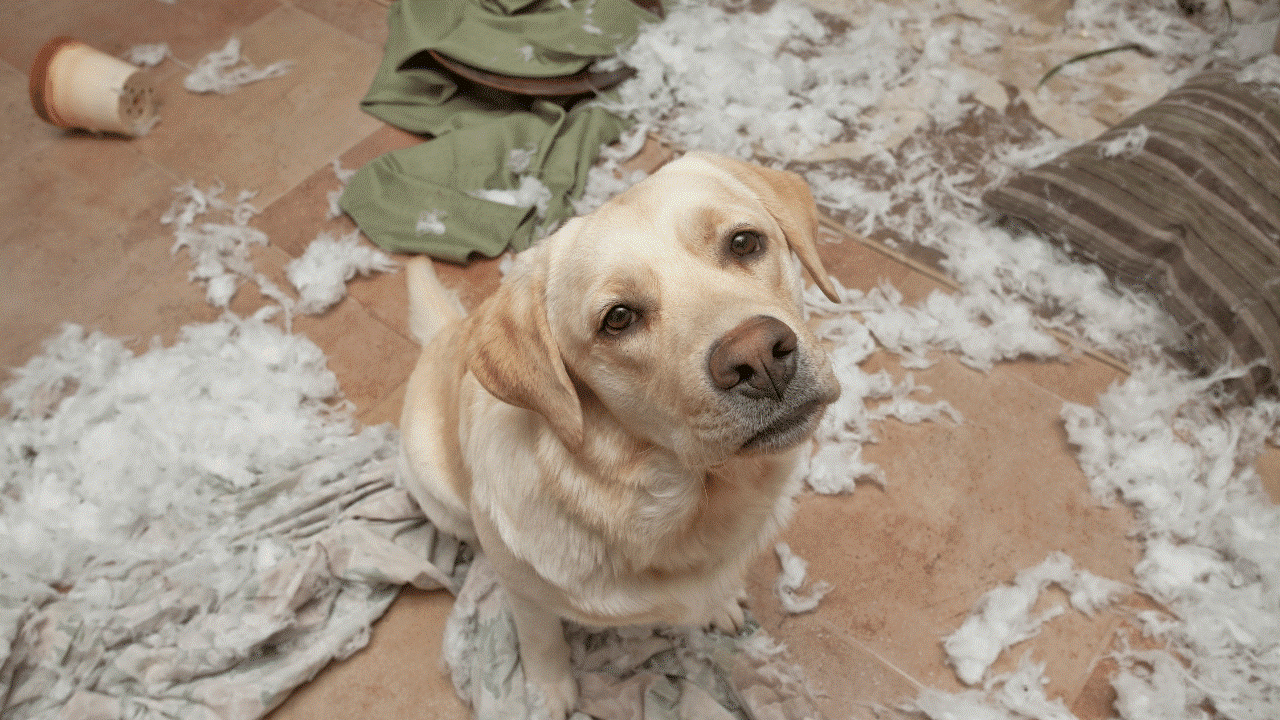
7) Never tell off your dog for anything that happens when you are out
We can all feel stressed, particularly after a hard day at work. But one of the worst things we can do is get angry with our dogs for something they did while we were out. A dog will not associate our anger with something that could have happened hours ago.
Your puppy will not understand, which will add to the anxiety that a dog feels when you leave them alone, leading to problems spiraling and more destructive or messy behaviors.
Like all training areas, if your dog’s behavior goes in the wrong direction, take the training back a few steps and patiently rebuild your dog’s confidence.
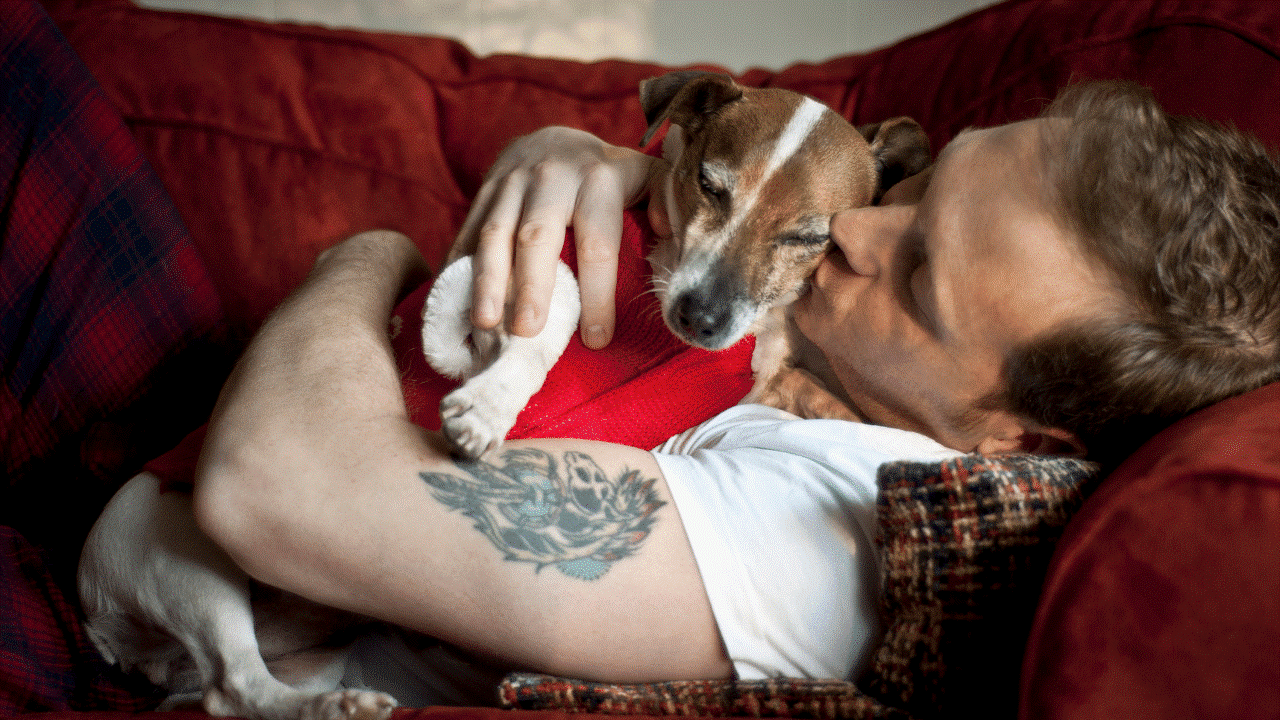
Alone but not lonely
There is no better companion than a dog, and let’s face it: you will never get such a happy, elated reception when you walk through the door from anyone else. It is one of the true joys of owning one of these wonderful animals.
How much better this feeling will know our loyal friend has not suffered too much in our absence.
Good luck with training your dog to cope with separation!
 DogExpress
DogExpress

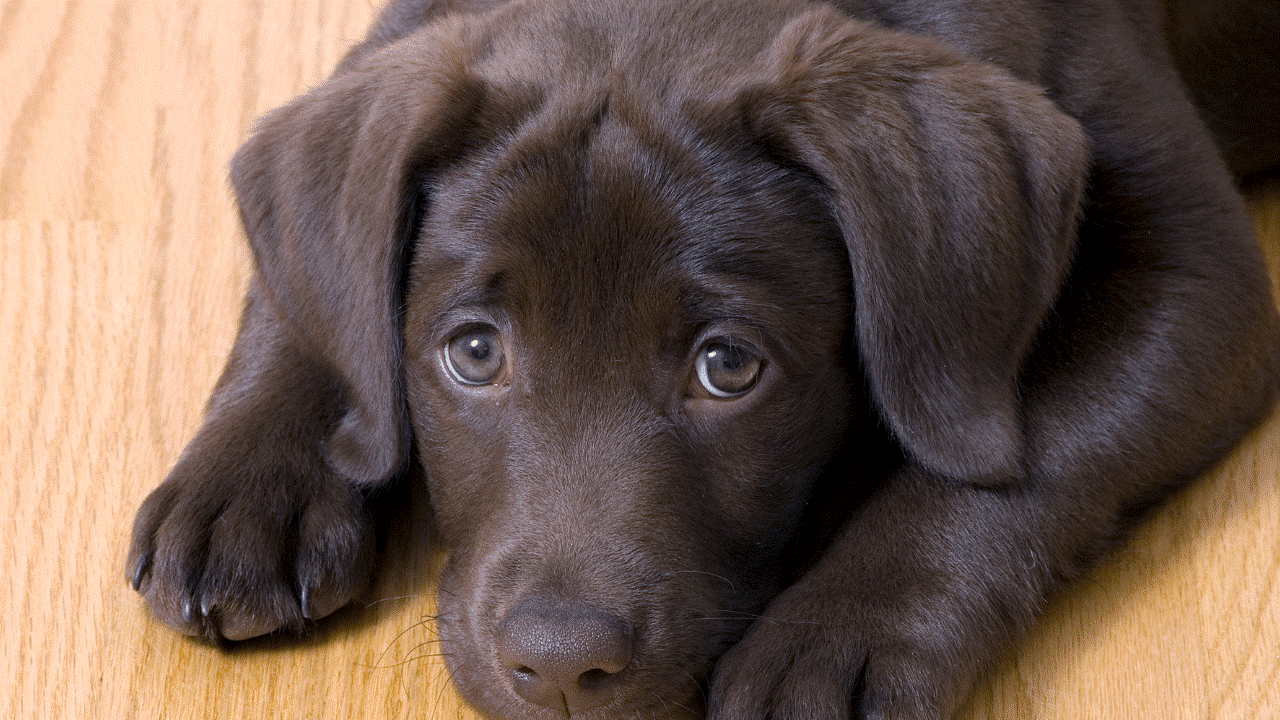
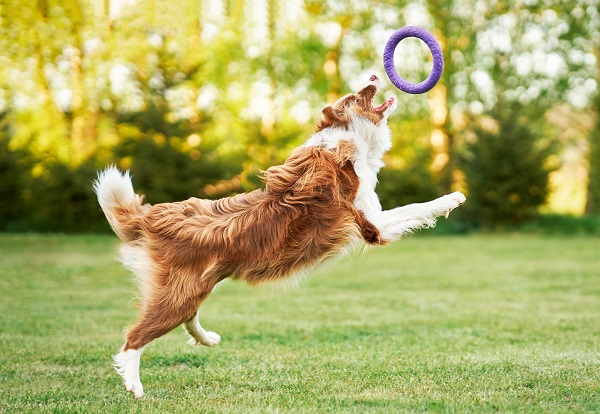
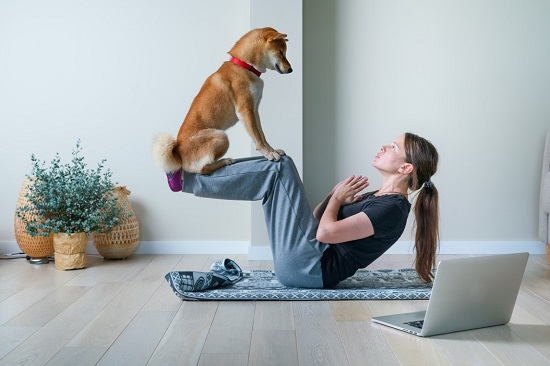















 in Chandigarh, India.
in Chandigarh, India. 

